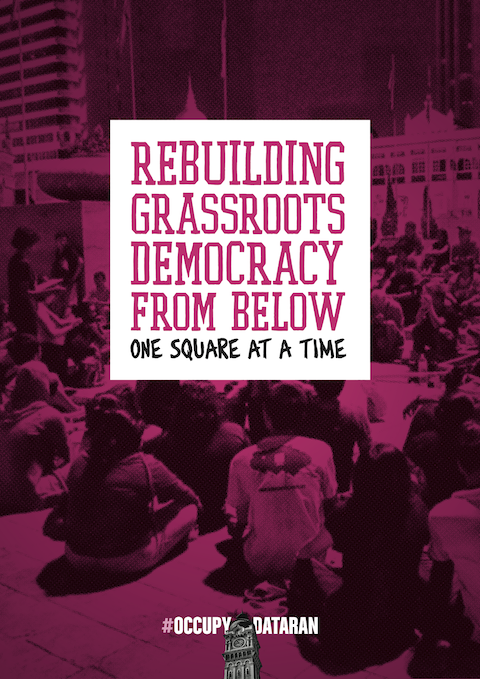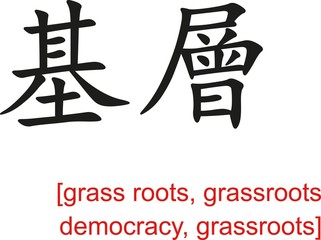Grassroots democracy
The basis of democracy is a concept defined as " diffuse collective term " form of direct democracy. It comes as those made in its conception as opposed to representative democracy without representatives, because all relevant decisions are coordinated by the person affected by " direct participation ".
Features
Became popular, the term in the context of citizens' initiatives and new social movements as a grassroots alternative to the Representative Democracy. The goal is in the tendency to remove the barriers between rulers and ruled, and through extensive direct participation in decision-making processes in favor of a viewed as a recognizable general will (see volonté générale ) to replace. In this sense, grassroots democracy draws on older versions as the precursor of Rosa Luxemburg to the spontaneity of the masses and concepts of Soviet democracy.
If there are officials in grassroots concepts, they should be subject to the permanent Opt-out. One of the fundamental difficulties is to narrow down exactly who should belong on participation legitimate basis and who is not. Is seen as an increased difficulty in achieving consensus and thus also in decision making. There is also the fear that the conflict- based democracy groups capable against weaker groups within the base prefer structurally.
Relying on the basis of democracy in Germany
A Party of Germany, which explicitly stressed in its inception phase to grassroots democracy, are the Greens. The electoral success in the late 1980s, and particularly the merger with the East Greens and various civil rights movements that went up in Alliance 90, however, led to an increasing professionalization and personalization of the Greens, who thereby gradually parts of their principles that opposed a hierarchy, tasks. Addition, there was also that a solid leadership due to the media coverage of the general population was more accepted than ever-changing people who were ultimately not well known outside the party.
Now it is the Pirate Party Germany, the most relies on grassroots democracy and swarm intelligence. This is justified, for example, why the party not on any important question has an answer: the decision in a 28000 -strong party was not hit as fast as in a board of six members.
View
The proliferation of Internet access makes it theoretically, online conduct grassroots votes in the network. Through so-called I- voting decisions could be made and evaluated quickly.
Fundamental criticism
Because the pure concept of identity- democracy - the grass-roots democracy is assigned - directed against the constitutional transfer of power from the mass of the people to abstract rules following institutions, such as in a pure grassroots democracy the rights of individuals remains questionable after critical opinion, before the could be protected access of the majority. The reached by the majority of institutional consensus could abolish the individual rights protected in law or governing principle at any time without laws.
In the West German representative democracy, therefore, a " constitutional core " of fundamental rights and constitutional principles such as the separation of powers than before the change or even repeal is being protected defined and could be touched (see eternity clause) only by total replacement of the Constitution or a coup.
The idea of grassroots democracy in its pure form is partially blamed a potentially totalitarian conception of politics due to its theoretically unlimited access power over the individual, therefore (see Carl Joachim Friedrich ), this allegation, however, should not be used to defame any form of direct democratic participation.










